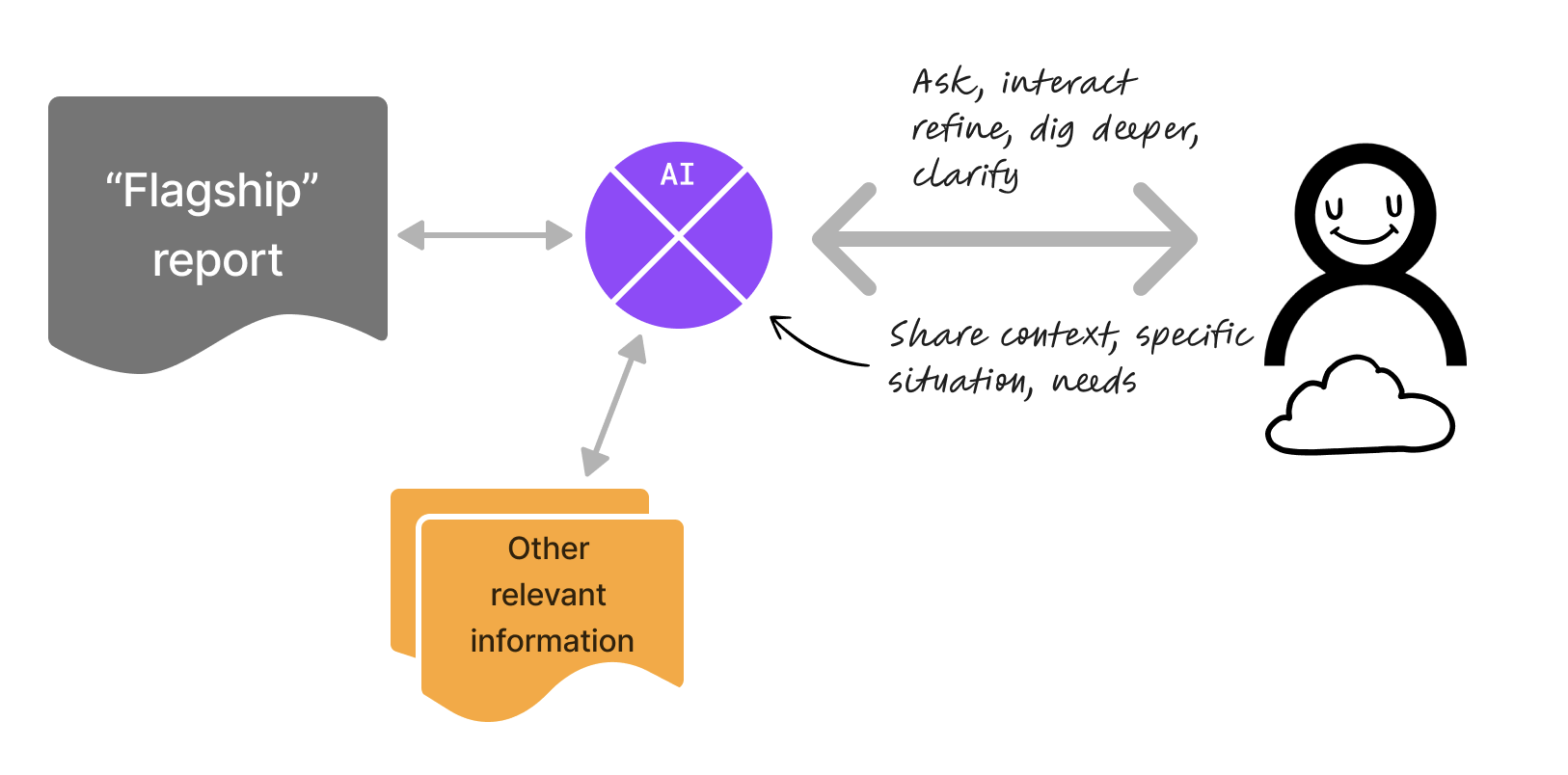Using AI to enhancing knowledge translation
This article was inspired by Dr George Wainaina’s questions in this post on LinkedIn.
TL;DR:
- Large Language Models (LLMs) facilitate nuanced, dynamic knowledge dissemination, transcending the limitations of traditional, generalized methods.
- LLMs excel in customizing information, essential for professionals in fields like WASH, making data more accessible and directly applicable.
- Their advanced capabilities streamline decision-making, but their responsible use is crucial to maintaining data quality, ethical standards, and relevance in insights provided, emphasizing the need for a balanced approach in their adoption.
Introduction
The traditional formats of disseminating academic and technical knowledge, especially through comprehensive 'static' reports, often face significant barriers in effectively reaching a broad audience due to their generalized nature. Large Language Models (LLMs) introduce a sophisticated means of knowledge translation, enabling more customized, dynamic, and user-specific information dissemination.

The challenge with current dissemination practices
In sectors like Water, Sanitation, and Hygiene (WASH), knowledge sharing is frequently conducted through detailed reports. These documents, while thorough, pose readability challenges and lack specificity for diverse professional contexts, thus impeding the practical application of critical insights.
Facilitating advanced information processing
LLMs are pivotal in transforming the processing and summarization of complex data. Beyond text generation, these AI systems enhance information condensation, presenting both extractive and abstractive summarization skills. The former involves sieving out key content from larger documents, beneficial for professionals needing quick access to essential points, as documented in studies like the one reported in Nature. The latter, however, allows LLMs to distill information into concise interpretations, often with efficiency matching or exceeding human experts, as demonstrated by research from Zhang et al. arXiv and Hugging Face.
Additionally, LLMs demonstrate proficiency in information synthesis and evaluation, critical for integrating diverse perspectives into a coherent overview. This capability, emphasized in their use of advanced analytical frameworks like G-Eval, supports their role in customizing insights to specific scenarios, transforming global data into applicable local solutions.
Practical application in knowledge translation
LLMs' ability to tailor information extraction and synthesis is exemplified in scenarios such as a sanitation practitioner in Vietnam employing LLMs to decipher a detailed Ghana-based sanitation study. The practitioner can derive broader principles and integrate findings relevant to their local context, demonstrating LLMs' efficacy in producing actionable, context-aligned data.

Enhancing decision-making through dynamic dissemination
LLMs facilitate a shift from traditional passive receipt of information to a more interactive knowledge exchange process. In sectors like WASH, professionals can engage in dialogues with these systems to obtain specific information relevant to their unique operational challenges. This dynamic interaction transforms practitioners from mere recipients to active participants in knowledge translation, enhancing the precision and relevance of interventions on the ground.
However, this innovative dissemination method necessitates a balanced approach, considering essential factors like data privacy, quality, and ethical standards to preserve the integrity of the insights and decisions derived from these interactions.
The importance of ethical use and data integrity
The benefits rendered by LLMs are accompanied by the imperative for cautious implementation, addressing potential issues related to bias, data privacy, and ethical dilemmas. The responsible and reliable application of these models is crucial to sustaining the accuracy and integrity of the knowledge translation process.
Conclusion
LLMs represent an advanced methodology in knowledge dissemination, particularly relevant in fields such as WASH, by providing precise and context-sensitive information exchange. These systems aid professionals in extracting relevant insights from extensive data, pivotal for informed decision-making. However, their effectiveness is contingent upon stringent adherence to data integrity and ethical standards, underscoring the necessity of responsibility in their application to ensure the authenticity and accuracy of shared knowledge.